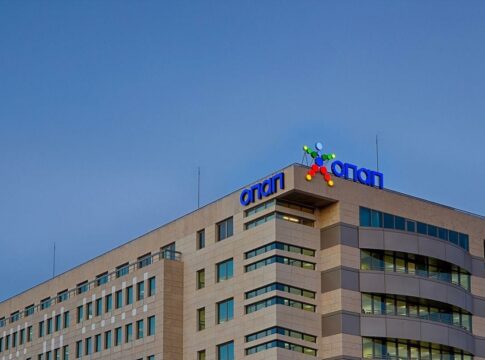Greek Prime Minister Alexis Tsipras has unveiled a “name issue” solution with the former Yugoslav Republic of Macedonia (fYRoM) that entails a composite name with a geographic qualifier for the neighboring state, and one that will be applicable in all instances.
Tsipras essentially announced the basic points of the bilateral deal to a nationwide television audience, as his briefing of the Greek President was carried live by several broadcasters – which interrupted regular programming. The only key point he left out – with cameras running, at least – was the actual name, although press speculation over the last few days has pointed to “Severna Makedonija” or ” Republic of Northern Macedonia” etc.
“We have an agreement… we have a good agreement that covers all of the conditions placed by the Greek side. We have a composite name with a geographic qualifier applicable everywhere (erga omnes), something that means that our neighbors assume the obligation to proceed with a constitutional revision.
“What is the most significant of all is that the agreement guarantees the historical legacy of ancient Greek Macedonia … The agreement will be ratified by Greece’s Parliament, after the other side (fYRoM) fulfils its basic obligations. You (Greek President Prokopis Pavlopoulos) are the first that I am briefing. I will brief other political party leaders and speak with the president of Parliament for the convening of a special plenary session in order to brief the national assembly,” Tsipras said.
In a lengthy “non paper” later issued by the Greek prime minister’s office, no less than 14 main points were cited, detailing the highlights of agreement. The written statement, albeit unofficial, began with a phrase that included the following “… Greece is taking back its history, the history of ancient Macedonia, which were appropriated by previous governments in the neighboring country”.
Among others, the statement said the agreement fully corresponds with the national policy maintained by Greece for the past 20 years, i.e. a composite name with a geographic qualifier, erga omnes.
The name of the neighboring state will be “Severna Makedonja”, as far as use in Greece are concerned, with the PM’s office saying this compromise puts an end to the irredentism entailed in the name “Republic of Macedonia”.
Additionally, the Greek side said the government in Skopje assumes the obligation to implement a constitutional revision, whereas Greece will only proceed with ratification when the former has concluded the revision. An invitation to join NATO and whatever opening of negotiations for individual chapters towards EU accession will also come after ratification by the parliament in Skopje.
The non paper adds that there will be a clear distinction between Greek Macedonians, the ancient Hellenic civilization based in historical Macedonia, and clear distinctions in language, history and other cultural characteristics.
On another crucial point, the citizens of the neighboring country, according to the draft agreement, will be known as “Macedonians/citizens of the Republic of North Macedonia”, whereas Greece will recognize the citizenship/nationality of the latter as “citizens of Severna Makedonja”.
Although the language will continue to be called “Macedonian”, the agreement include a clause that it will be accompanied by a clarification that it belongs to the family of southern Slavic languages.















